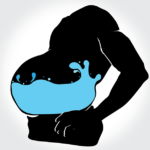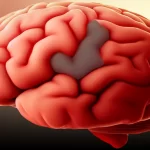Depression as it relates to humans, has two broad definitions:
- A state of mind, or mood, which is a consequence of a bad, or series of bad events. It is temporary, and also known as ‘depressed mood‘.
- One of various mood disorders, which may occur when a ‘depressed mood’ persists for too long.
In other words, depression describes both a mood and a mood disorder.
Following our tradition, the first part of this article is a poem about depression, while the second, elaborates on the poem.
Enjoy this classic poetry (video and transcript), and read this article to the end, to learn about depression.
Depression and Survival
You have a target taking forever to achieve,
an experience you’d rather not believe,
emotional distress no one seems to perceive,
loss, that causes you to agonizingly grieve
You are mocked for inability to conceive,
blamed for toxic relationship you won’t leave,
trolled for being helpful, and called naïve
Maybe it’s the substance you’re addicted to,
your different or “eccentric” world view,
the bullying, or diagnosis you wish untrue
No one knows what it means to be you;
what you have been, or are going through,
how you yearn to be who’s who,
or your earnest desire to be someone new
Somehow, your misery became hopelessness,
with unexplainable fatigue and tiredness;
insecurity turned to feelings of worthlessness,
costing you relationships, and joblessness
Pleasures and desire fade, leaving blandness
People stigmatize you, saying it’s madness,
or negative energy: contagious sadness
You’re overeating, or satistfied in a blink,
oversleeping, or not getting more than a wink
somatizing: symptoms with no disease link
You’re disheveled, and they say you stink,
buried in the distillery and brewery drink
You think to end it: you’ve reached the brink
Finally, you see the psychiatrist: the shrink
After talks about personality and ideation,
insight and stressors, you get a prescription;
diagnosis: clinical depression
There is hope; here is some motivation:
all humans are marred by imperfection;
at times, we suffer, and there is no exception
in many cases, it’s from others’ indiscretion
Sometimes, we need specialist treatment,
prescription pills, lifestyle adjustment,
exercise, hobbies, healthy nourishment;
but in addition, learn self-encouragement,
and try to appreciate every little achievement
Tell yourself: “I will survive this predicament”
Willpower is key to fighting disappointment
Depression, explained
Background
To understand depression, it is important to first know the meaning of mood.
Mood is a general state of mind which represents positive or negative feelings or emotions. For example, after a good nights sleep, receiving unexpected compliments or financial reward at work, a positive state of mind becomes obvious as “good mood“. This is like a mild form of happiness that persists; the reverse is also the case.
When bad things happen, mood may become very low, with loss of interest in things that normally bring joy. Appetite and sleep may also reduce, or even increase, and ability to concentrate may drop significantly.
In most people, this “depression mood” gradually disappears and life returns to ‘normal’, after a few days.
Sometimes however, a combination of biological, psychological and social (biophychosocial) factors makes some people prone to being in this state of ‘depressed mood’ for longer than normal. It therefore becomes a mood disorder.
A mood disorder (also known as affective disorder) is a mental health disorder, which has disturbance in mood as its main feature. Follow this link to learn more about mood disorders.
Mood disorders which have depression as a component include:
- Major depressive disorder (also known as clinical, unipolar, or major depression): a severe form of depression.
- Dysthymic/ Cyclothymic disorder: two forms of depression, with milder symptoms than ‘major depressive disorder’.
- Post-partum disorder: Depression after giving birth.
- Premenstrual dysphoric disorder: Depression immediately before menses (see a beautiful poem about menses here: Days of the Monthly Visitor).
- Bipolar Disorder: depression interchanging with mania.
- Schizoaffective disorder: depression on its own, or as a component of bipolar disorder, plus schizophrenia
Over 300 million people in the world (mostly females), have depression, of which every year, more than 800,000 lose their lives, due to suicide.
Causes and predisposing factors of Depression
Generally, ‘vulnerability‘ plus ‘stress‘ (or ‘trigger’) gives rise to ‘Depression‘. This means that a stressor or trigger will likely cause depression, if a vulnerability factor is present.

Vulnerability to depression may come in the form of the following:
- Genetic factors: some people are born with the tendency to have depression.
- Childhood experiences: neglect, abuse (sexual, physical or emotional), loss of a family member, preferential treatment of siblings, and so on.
- Personality: research shows that introverts are more prone to depression, than extroverts.
- Poverty: from crime to depression, the effects of poverty are quite vast (see this poem: “Below the Poverty Line“).
Stress or triggers, which may provoke depression as a mental health disorder in some persons, may appear as “bearable” or “little”, in others. Examples include:
- Work or school stress.
- An overwhelming life event, like marriage, childbirth or menopause.
- Exposure to violence in games, or lyrics of songs.
Sometimes, this “vulnerability plus stress” model may not be so clear cut, and it may appear to be one single predisposing factor; for example:
- News of a chronic illness or medical condition, like cancer, diabetes, hypertension , multiple sclerosis or HIV.
- Life changing events, like natural disasters, or loss of grown children.
- Heartbreak or emotional distress.
Other factors that may cause or predispose one to depression, include:
- Side effects of medications, like contraceptives, beta-blockers (for arrhythmias), medications for convulsion (anticonvulsants), migraine (antimigraine), psychosis (antipsychotics) and so on.
- Substance abuse, for example, alcohol and illicit drugs (cocaine and amphetamines). Long-term use, intoxication or even withdrawal, may lead to depression.
- Nutritional deficiencies of some B vitamins.
Symptoms
The symptoms that define the ‘depressed mood‘, are also present in the depression disorders; however, the most important differentiating factor is time.
In other words, the depressed mood is a symptom of the depression disorders like ‘major depressive disorder, cyclothymic disorder and so on (see above).
Features of the depressed mood
- Anhedonia: lack of interest in activities that normally bring joy.
- Low or negative mood (like a persistent mild form of sadness).
- Difficulty in concentration.
- Disinterest in all forms of activity.
- Increase or decrease in appetite.
- Too little or too much sleep.
On the other hand, symptoms of depression as a mood disorder depends on the type of disorder.
Major depressive disorder: clinical depression (symptoms)
At least, two weeks of:
- Depressed mood (see ‘features of depressed mood’, above).
- Low self esteem.
- Feeling of extreme guilt or regret
- Feeling hopelessness or worthlessness.
- Physical symptoms which do not correlate with any disease
- Extreme fatigue or excessive tiredness
- Disinterest in sex.
- In severe cases, delusions (including hallucinations) self-harm and thoughts of suicide.
Treatment
Treatment of depression may involve:
- The use of medications (antidepressants)
- Counseling sessions
- Group therapy
- Family and friends’ support
- Specialist treatment, like ‘Electroconvulsive Therapy (ECT)’ and cognitive behavioral therapy (CBT).
- Lifestyle changes, for example, stopping the use of illicit drugs and alcohol.
- Withdrawal of medication, in the case of depression due to side effects.
- Exercise and healthy diet.
- Getting a hobby or pet.
- Specific treatment for specific types of depression, for example, hormonal treatment for premenstrual dysphoric disorder.
How you can help?
Depression can affect anyone; it is therefore important that we know the symptoms of depression and seek help for ourselves or others. The follow tips help:
- Be your own cheerleader and celebrate even the little wins.
- Exercise regularly and try not to spend too much time alone.
- Try to eat healthy.
- Avoid illicit drugs and alcohol.
- Check up on family and friends, and try to help others in need.
- Talk to a doctor or someone you trust, about how you feel.
- Don’t be shy to tell your doctor if you have thoughts of harming yourself or terminating your own life.
Conclusion
Depression describes a low mood, or one of a number of mood disorders.
It is usually due to a combination of factors like past experiences or genetic predisposition, plus a stressor or trigger.
Other factors may also predispose one to depression, for example, a chronic illness.
Treatment includes the use of antidepressants, family support and so on.




